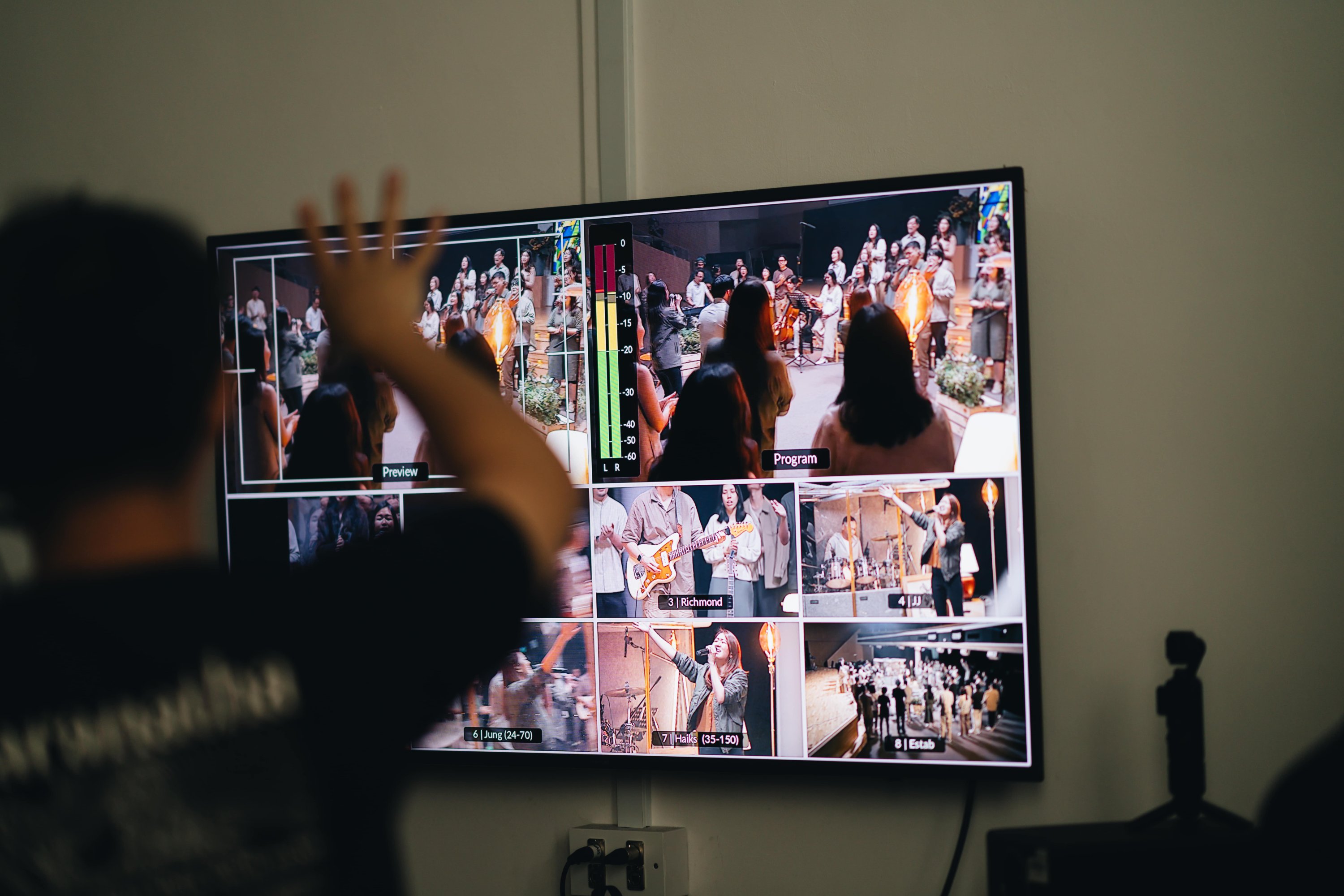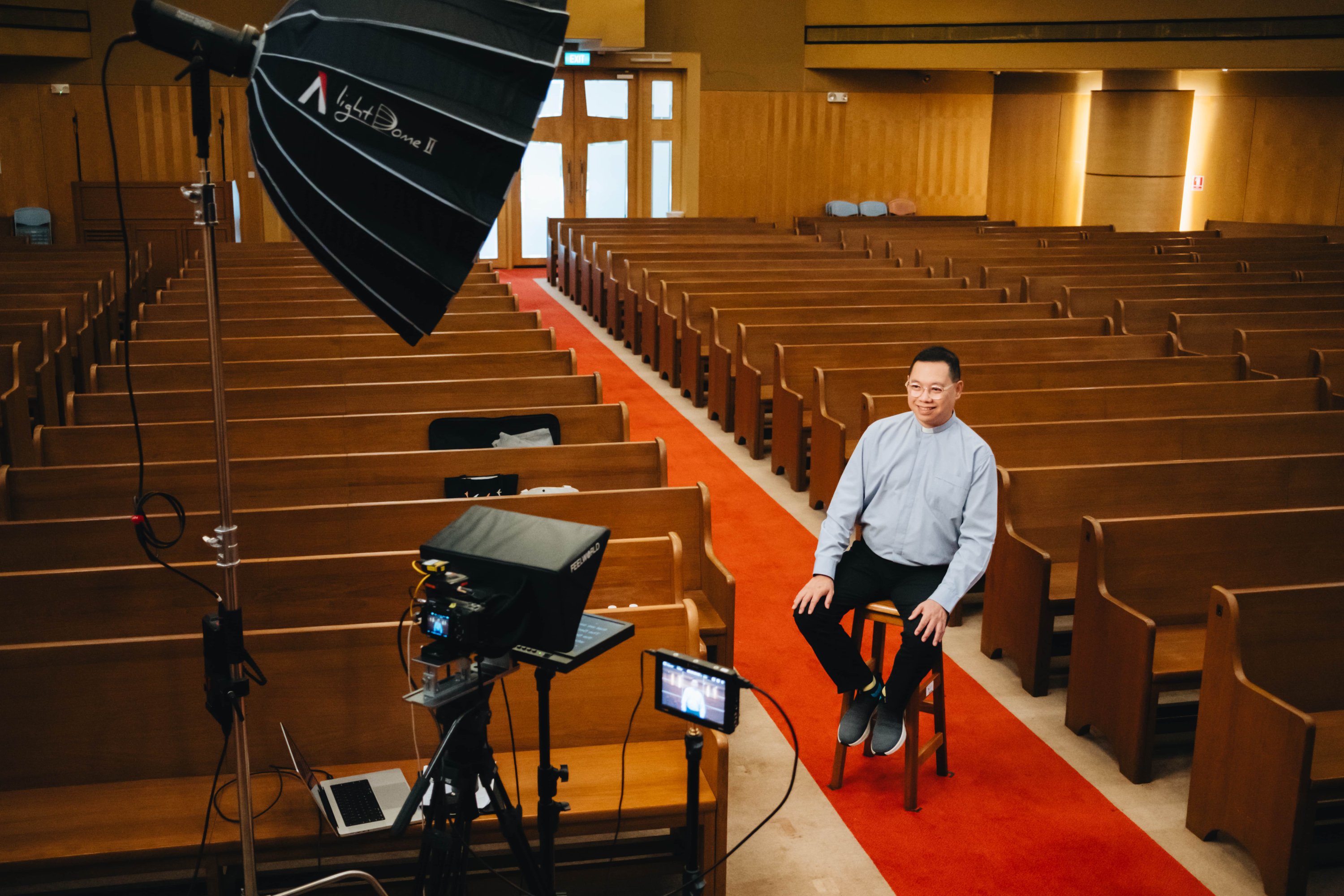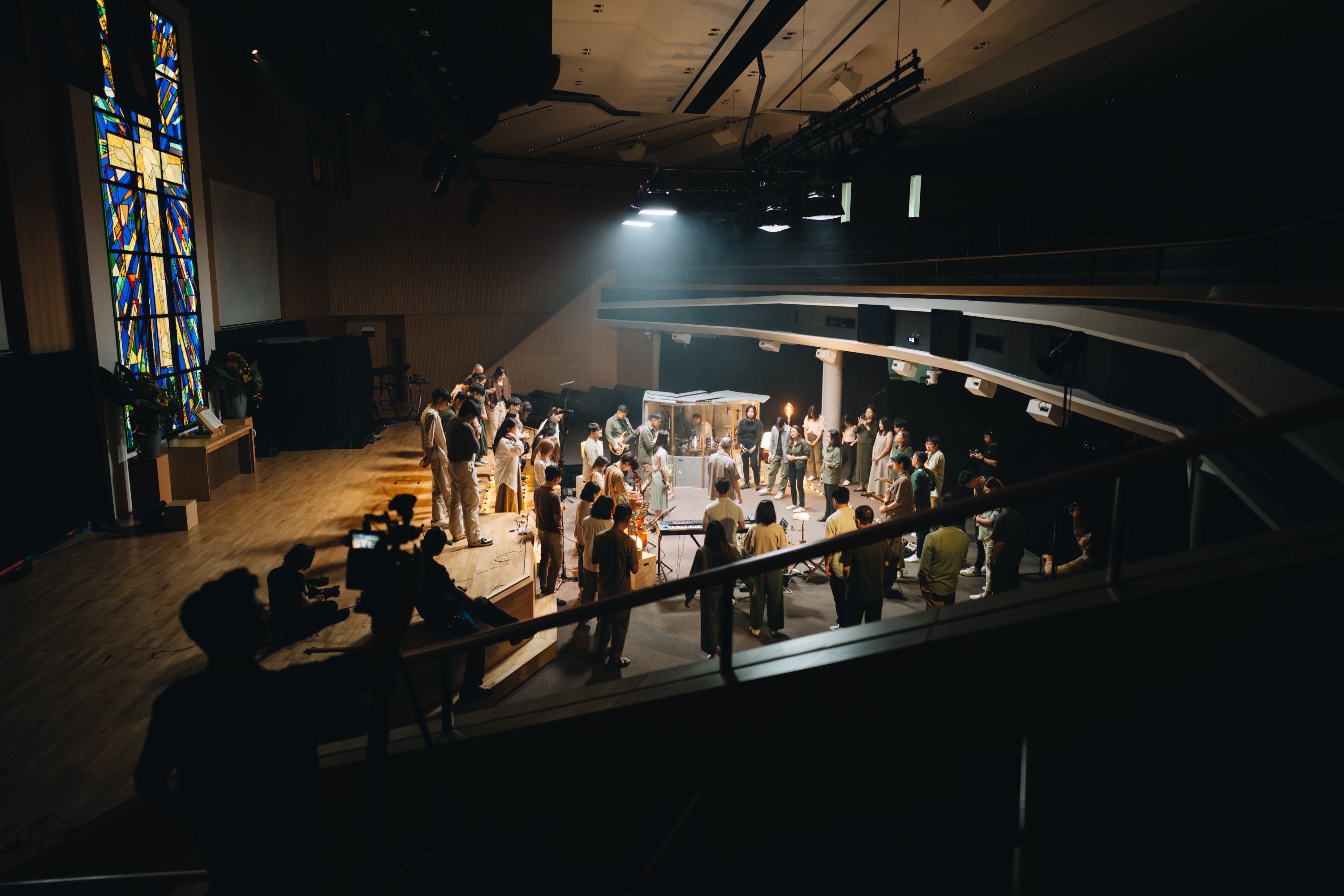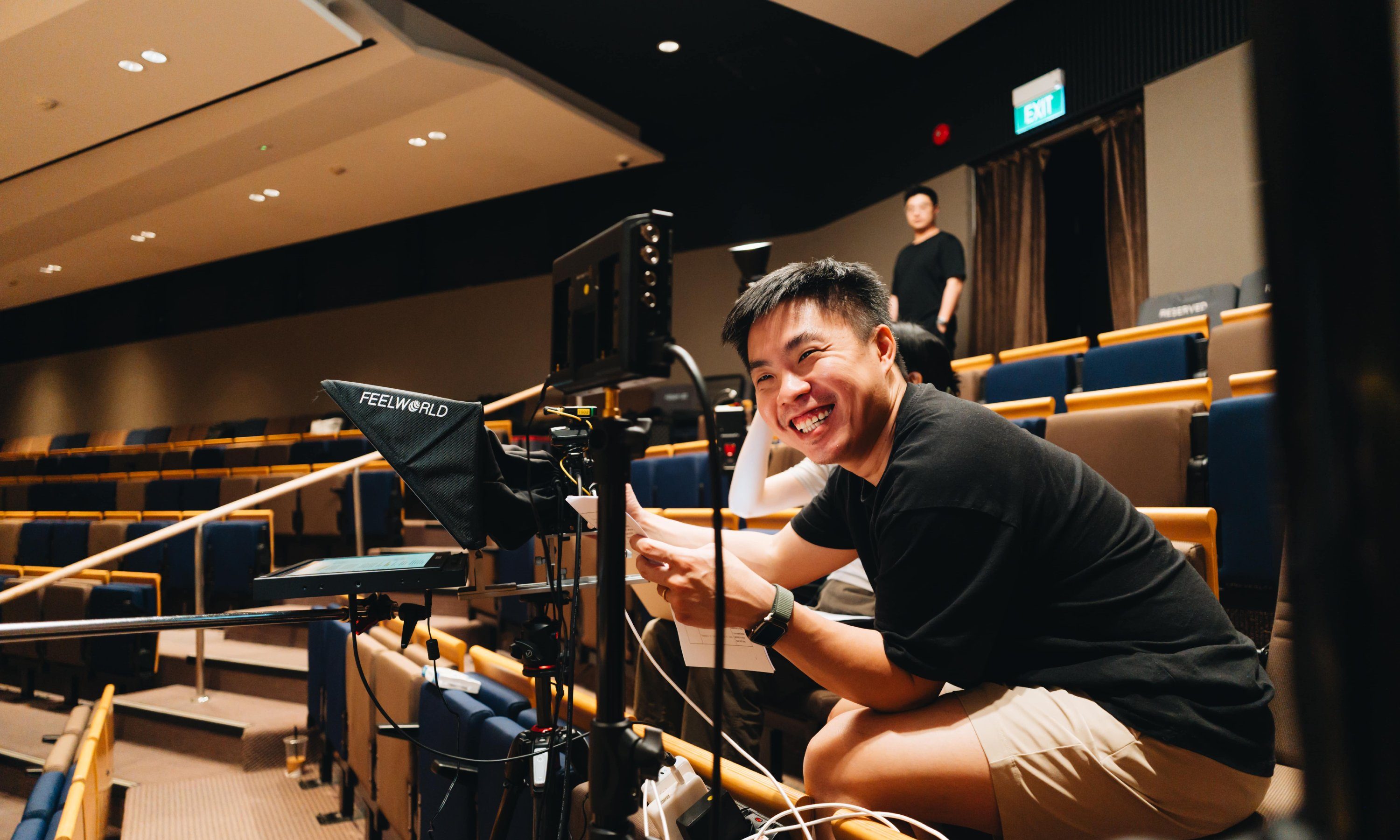Photography had been a hobby since my army days in 2010, but after getting a few requests from friends to help them photograph their birthday parties and weddings, it escalated to a full-time job. The jump into photography full-time was not without its challenges—I had to make the decision to leave my corporate job as a Communications Executive to pursue this unstable career.
I also started volunteering in the church’s media team, and the Lord placed this strong burden on my heart for media excellence in the church, so I answered the call to join as a part-time media staff in 2018, and converted to a full-time role a year later, staying till 2023.
The annual Young Methodist Leaders Conference served as a platform for meeting Methodists from other churches, and it was in 2018-2019 where I met like-minded people who also believed that the Church should do more in utilising media as a communications tool. Every year when we got together, we would chat about how we can use high quality videos and images, coupled with a good communications strategy, to effectively convey messages.
In 2023, after working relentlessly through the pandemic, I left Faith Methodist Church to take a break. It was a weird feeling—I knew the importance of media as a tool to communicate and to reach out, but the world, specifically the Church, was just slowly realising how powerful it could be.
During my sabbatical, I was walking home from dinner one day when the Lord dropped this vision into my head. Rows and rows of iMacs and editors. A large industrial space. The words “building a media army” just popped into my head. It was then that I felt the Lord prompt me to start a business that would become “a media army” for the Church. This is how I came to start Zoe Collective.
Zoe means “life abundant” in Greek. Zoe Collective houses three arms: a production arm, a communications arm and a consultancy/training arm. Zoe Collective aims to transform dreams and ideas into media products, revitalising churches and organisations with fresh creativity.
Since its inception in 2023, Zoe Collective has helped to produce teaching videos for Trinity Annual Conference’s Board of Witness & Evangelism as well as Board of Discipleship & Nurture. Zoe Collective has helped train and inspire media teams from various Methodist churches and supports Methodist School of Music in producing high quality content.


Over these two years, I felt the Lord impressing these things on my heart to do through Zoe Collective.
- Build a community of media and communications staff among the Methodist churches
Ministry can be lonely and challenging, especially if you have to wear multiple hats in your job. I dream of a community that meets regularly, shares best practices and ideas, and prays for each other. We could even share resources and equipment.
- Mentor people looking to venture into production and photography
Jesus had 12 disciples, and of the 12, Peter, James and John were his closer companions. They followed Jesus, modelled his behaviour, sat at his feet, did whatever he told them to do. Zoe Collective aims to serve the Church by discipling a few individuals who are looking to venture into this line of work, providing real world opportunities, and guiding them to serve in a Christ-like manner in a high pressure environment.
- Create jobs with fair remuneration and a healthy work environment
More often than not, people who do not see the value of media would not set aside enough budget for it. It can be frustrating and taxing for someone to do a job with excellence, if he/she is given a 10-year-old camera that struggles to focus or is mouldy. The production environment is also almost always tied to being high stress and cut-throat, with low pay and long working hours. What would it look like if we could provide a better work environment that honoured God?
- Provide shared resources for local and overseas Methodist bodies
If we are the body of Christ, we cannot keep looking internally at our own local churches, especially if other parts of the body are struggling. If there are churches with ideas and dreams to create content, other parts of the body should step in to help. After all, we are one Methodist body.


Why the Church should focus its resources on media
1. Scalability
When we think of social media, or media, we often think of our local context. As a Christian in Singapore, we already have an abundance of resources to equip ourselves to grow in our faith. But I feel a sense of urgency for our neighbouring countries, who may not have enough quality content in their native tongue that spurs them on, or even to reach out to those hard-to-reach places.
The Lord really challenged me. What if we equipped our regional brothers and sisters in Christ with the necessary tools and skills for storytelling in their native tongues? Based on population size alone, they have a much greater reach than us here in Singapore. A testimony video shared on our local Christian media channels could potentially reach 50,000 to 100,000 views. But a friend in Vietnam shared that a testimony that he did could reach between 2 and 5 million views.
2. Thought leadership
With the increase in mobile apps, almost anyone can become a content creator. More and more, thoughts and feelings are being shared online, and if the Church does not start helping its members see biblical truths and its relevance to today’s topics, they are going to get their ideas from elsewhere. Our young ones are especially impressionable—whatever they learn on social media may guide them towards or away from the truth.
3. Relevance
I read in a business magazine about companies that failed to adapt to modern and relevant practices quickly became bankrupt and irrelevant. Some examples quoted were Nokia and Kodak; both were extremely slow to adapt to the changing landscape of their industry, and therefore lost significant market share.
Similarly, in this attention economy, if the Church does not produce high quality images and videos to stay relevant and keep up with the world, it will soon lose its relevance and influence. I’m not saying that we need to conform to the world’s standards, but we should use it as a benchmark to stay relevant.
Two Christian examples that have managed to keep up with the times are @theaibibleofficial on Instagram, and “The Chosen” series on Netflix. The AI Bible Official uses AI to generate videos that help us visualise what it looked like in biblical times. I particularly like the videos on Revelation, where they portrayed the various characters, which helped my understanding of Revelation more, since I’m a visual learner. “The Chosen” is a multi-season drama series about Jesus seen through the eyes of those who knew him.

I could go on and on about how we can use media for good, and I know that there are many people who would argue that the overconsumption of media has negative effects. I would then submit to you, dear reader, that we should start flooding the digital space with testimonies of God’s goodness and faithfulness, AI-generated Bible stories, pastors and leaders talking about sensitive topics and how we, as Christians, should respond, so that this generation and the next will not be so easily swayed by the world.




